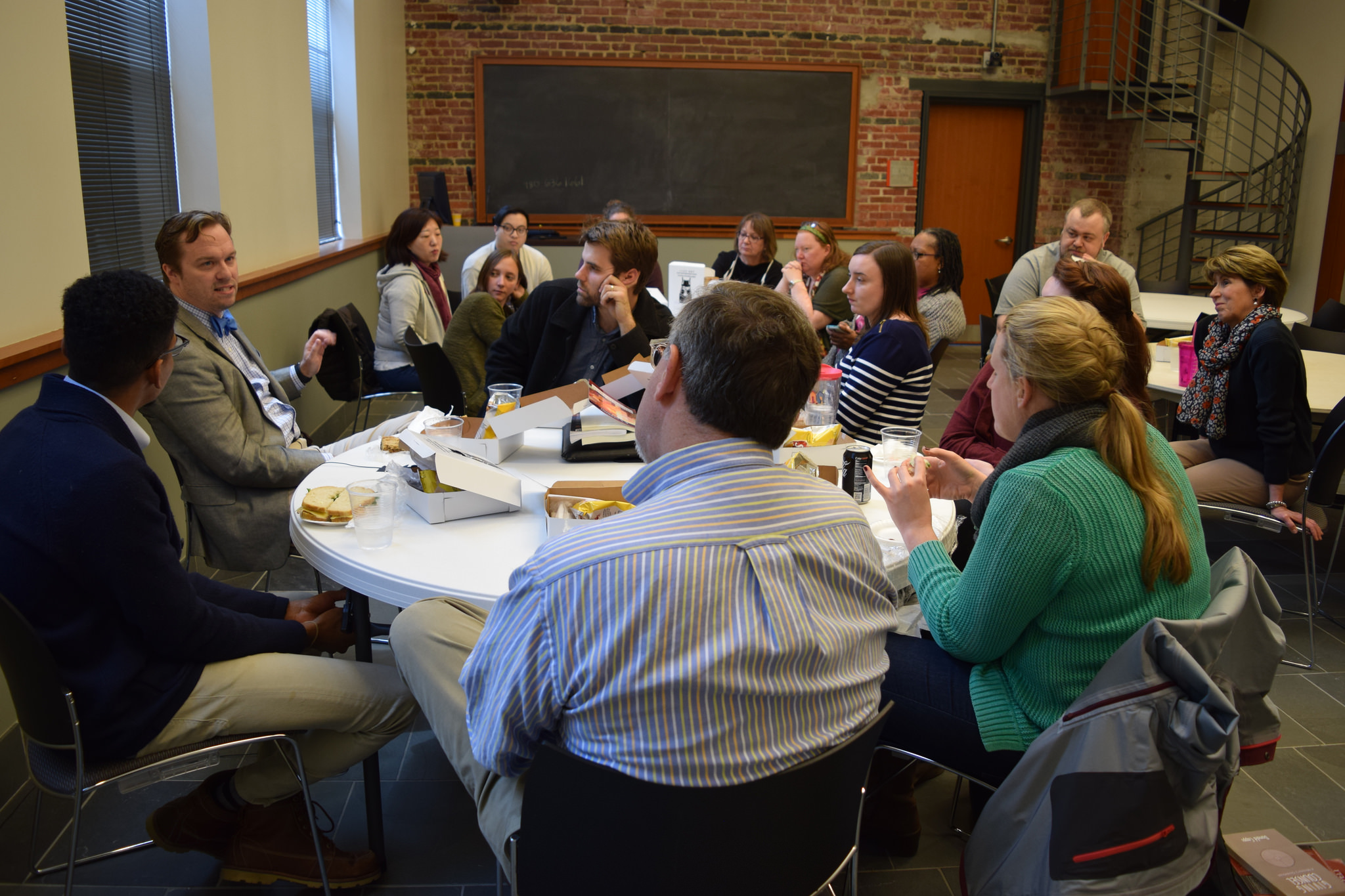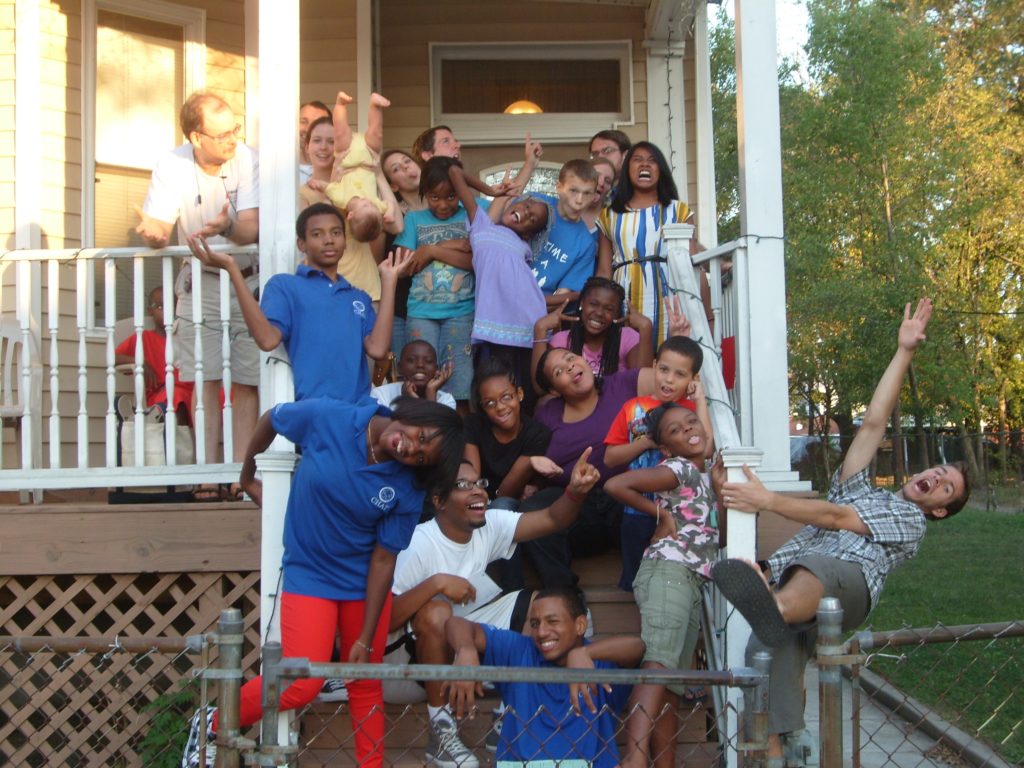Key to knowing your neighbor is opening your front door

Alumnus Percy Strickland and Chris Schofield of CHAT meet with Richmond campus students to share how their ministry helps people in the city’s East End overcome poverty.
By Sandy Irby, Communities of Learning Director
Being a good neighbor means getting to know your neighbor. Union Presbyterian Seminary alumnus Percy Strickland (M.Div. ’06) and his wife Angie realized this upon moving to a community with one of the highest concentrations of poverty in the United States – Church Hill in Richmond, Virginia’s East End.
After he joined in a few neighborhood basketball games, children began following him home, Percy told UPSem students at a “Lunch & Learn” conversation co-sponsored by the seminary’s Communities of Learning program and Supervised Ministry & Vocational Planning Office.
“And we realized the things we’ve taken for granted like our home, we see as a refuge, but the more I read the Bible the more I see the home as a centerpiece of ministry,” said Strickland. “I said ‘I’m going to have to open my front door.’”
While a student at UPSem student, Percy and Angie opened their home to neighbors for fellowship and food. Neighborhood youth flocked toward that open door—drawn by the warm welcome and genuine fellowship awaiting them inside.

Over time, relationships formed, and the children grew comfortable asking for help with homework. More kids came, and friends of the Stricklands assisted with organizing and mobilizing tutoring resources. What began as casual homework sessions grew into CHAT (Church Hill Activities & Tutoring), and the concept of opening neighborhood homes became the hallmark of the organization.
“The public school system is not in the kind of place to meet the needs of CHAT’s kids,” said Strickland. “So we basically created a parochial school.”
Over the past 13 years, CHAT has grown from this humble start in Strickland’s home to a highly successful non-profit organization that serves 250-300 neighborhood youth daily and includes a pre-school, a high school, a work leadership institute, after-school programs, summer camps, and, a soon-to-open restaurant that will serve as a job training site for CHAT program participants.
Strickland’s message to students was an inspiring one, conveying CHAT’s passion for relationship-building in a neighborhood so deeply affected by structural injustice—a passion fueled by an overarching belief in the power of Christian fellowship to transform communities.
“Having a relationship with these kids and their families has made us rethink how we want to live life,” he said. “It’s grown my faith tremendously.”

